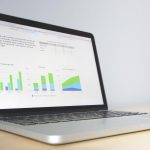Gone are those days when folks would have to stand and wait for taxis or cabs to pick them up and drop them to their destinations. Now, it's at their fingertips. Cabs are, well and truly, only a touch away. It has indeed become so easy. No more hollering or wasting your time. But we should realise that there is a lot going on behind the scenes, getting you the cab. Do they not … [Read more...] about How Big Data can Help Cab Aggregators
Big Data
Learn everything you need to know about big data. Find out how companies are using this revolutionary technology and what it means for your business strategy.
HDFS vs. HBase : All you need to know
The sudden increase in the volume of data from the order of gigabytes to zettabytes has created the need for a more organized file system for storage and processing of data. The demand stemming from the data market has brought Hadoop in the limelight making it one of biggest players in the industry. Hadoop Distributed File System (HDFS), the commonly known file system of Hadoop … [Read more...] about HDFS vs. HBase : All you need to know
The Power of Artificial Intelligence to Revolutionize the Oil & Gas Industry
Global oil supply appears comfortable for the next three years, but according to Market Report Series: Oil 2017, growth slows considerably after that. To keep pace with demand after 2020 means getting caught up with 21st-century technology immediately. The oil and gas industry has long leveraged innovation, namely when it comes to drilling, but business intelligence … [Read more...] about The Power of Artificial Intelligence to Revolutionize the Oil & Gas Industry
Is Big Data a Slippery Slope?
I know one thing; that I know nothing. These words were famously attributed to Socrates in one of Plato's accounts of the philosopher, a phrase that now comes to represent the Socratic paradox. While it is contested whether Socrates actually said these words, the meaning is still poignant, indicating that the wisest people are the ones who don't assume to know all, who keep an … [Read more...] about Is Big Data a Slippery Slope?
How Can Predictive Analytics Enhance Customer Base and Experience
The marketplace has changed, that much is apparent. Customer expectations have taken a U-turn and put most previous practices to rest. People no longer tolerate being generalized and expect companies to treat them on a personal level. While this is understandable reasoning from an individual's perspective, the game completely changes when looking at this from the other side. … [Read more...] about How Can Predictive Analytics Enhance Customer Base and Experience
What is big data?
Big data is a term that refers to the massive amount of digital data created and shared every day. Big data can transform how we live, work, and communicate. It can be used to improve everything from public health and urban planning to business and marketing.
Big data is also changing the way we think about privacy and security. The volume, velocity, and variety of big data present challenges and opportunities for organizations and individuals. Regardless, big data is here to stay, and its impact will only continue to grow in the years to come.
What is big data analytics?
Big data analytics is the process of turning large, complex data sets into actionable insights. Businesses use various analytical tools and techniques, including machine learning and statistical analysis, to do this.
Big data analytics can be used to improve decision-making in areas like marketing, operations, and customer service. It can also be used to identify new business opportunities and optimize existing processes. With the help of big data analysis, businesses can gain a competitive edge by using their data better.
Want to learn more about big data? Datafloq has courses available. Contact us to get started.
When was big data introduced?
The term big data was coined in the 1990s, with some giving credit to John Mashey for popularizing the term. However, the concept of big data has been around for much longer.
Where does big data come from?
In the early days of computing, scientists and businesses began to realize that the amount of data being generated was increasing exponentially. As a result, they began to develop new methods for storing and processing data.
Over time, these methods have become increasingly sophisticated and have played a key role in enabling businesses to make sense of vast amounts of information. Today, big data is used in various industries, from retail to healthcare, and its importance is only likely to grow in the years to come.
What are examples of big data?
One of the most common examples of big data is social media data. With over 2 billion active users, Facebook generates a huge amount of data every day. This includes information on user interactions, posts, and even location data. Analyzing this data can help companies better understand their customers and target their marketing efforts.
Another example of big data is GPS signals. These signals are constantly being generated by devices like cell phones and fitness trackers. When combined with other data sets, GPS signals can be used to provide insights into everything from traffic patterns to human behavior. Finally, weather patterns are another type of big data set. By tracking these patterns over time, scientists can better understand the impact of climate change and develop strategies for mitigating its effects.
How do companies use big data?
Companies use big data in marketing, product development, and customer service. By analyzing large data sets, businesses can identify patterns and trends that would be otherwise difficult to spot. For example, a company might use big data to track customer behavior patterns to improve its marketing efforts.
Alternatively, a company might use big data to improve its products by identifying areas where customers are most likely to experience problems. For instance, big data can be used to improve customer service by finding pain points in the customer journey. Ultimately, big data provides companies with a valuable tool for gaining insights into their business operations.






